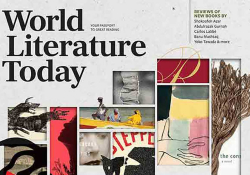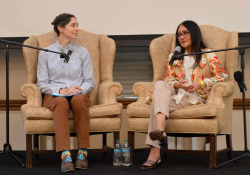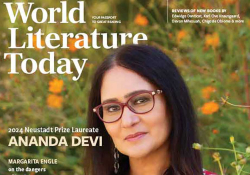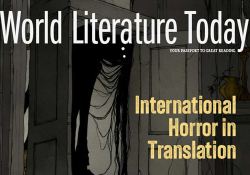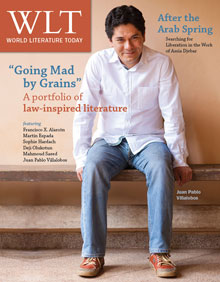Editor's Note, November 2012
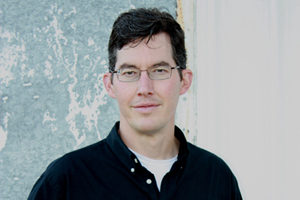
In the spirit of the dead, the living, and the unborn, empty your ears of all impurities, o listener, that you may hear my story. - Ngũgĩ wa Thiong'o, Wizard of the Crow (2006)
Article 6 of the Universal Declaration of Human Rights reads: “Everyone has the right to recognition everywhere as a person before the law.” On December 10, International Human Rights Day will mark the sixty-fourth anniversary of the UDHR’s adoption, in 1948, by the UN General Assembly. In his 1974 Nobel Peace Prize lecture, UN assistant secretary-general Seán MacBride called for an additional set of rights to be enshrined in the declaration: “The right of an individual to refuse to kill, to torture, or to participate in the preparation for the nuclear destruction of humanity.”
While the right to conscientious objection, in the usual shorthand, typically pertains to military service, the Convention Against Torture, which entered into force in 1987, goes further by laying out states’ obligations to prevent torture and other cruel, inhuman, or degrading treatment and punishment. In WLT’s November 2009 issue, with its cover feature on prison literature, “Voices Against the Darkness,” I pointed out in my editor’s note that even as the international community justly condemns regimes around the world for human rights abuses, after 9/11, when the US government sanctioned a systematic policy of extrajudicial detention, extraordinary rendition, and “enhanced interrogation” techniques in fighting the so-called War on Terror, it made a mockery of its adherence to the Convention Against Torture, which it signed in 1988 and ratified in 1994. More recently, when the US Department of Justice announced on August 30, 2012, that it would not prosecute CIA personnel associated with the deaths of two detainees held in US-run prisons, Gul Rahman and Manadel al-Jamadi, the likelihood that those who ordered torture, provided its legal justification, or actually engaged in torture during the past decade will ever be held accountable vanished, for all practical purposes. The death of Adnan Farhan Abdul Latif at Guantánamo on September 8, 2012, even after a federal court in 2010 ordered that he be freed, serves as a reminder that this dishonorable chapter in American history has yet to be closed.
What the legal system refuses to acknowledge, however, literature shines a klieg light on. As Deji Olukotun acknowledges in his introduction to this issue’s cover feature (page 26), law and literature are “intimate bedfellows.” In extremis, literature not only interrogates the law on its own grounds but questions the law’s very ability to adjudicate morality, or prosecute its absence. In Mahmoud Saeed’s story “Lizards’ Colony” (page 30), an Iraqi-born American woman who serves as an interpreter in a brutal, Abu Ghraib–like detention facility (and is raped, upon arrival, by soldiers stationed at the camp) becomes complicit in the murder-by-torture of a Moroccan prisoner during interrogation. I challenge you: read Saeed’s story, and never again will you hear the cliché “Everything has its price” the same way. Read it, and I defy you to be unmoved. Read it, and tell me that phrases like “collateral damage” and “statistically insignificant” have no human cost behind them.
In our prison literature issue, I also quoted Caleb Smith’s assertion that “law and literature are not separate spheres. . . . They are intersecting, interdependent discourses, all involved in the project of imagining the human figure at the threshold between bondage and freedom” (The Prison and the American Imagination). When prisoners are consigned to a state of “monstrous exile . . . outside the circle of juridical and philosophical humanity,” Smith argues, “the very foundations of citizenship and sovereignty” are at stake. And in democracies that pride themselves on the rule of law, monstrous perversions of the legal system taint every citizen. As long as engaged writers—whether novelists, poets, playwrights, bloggers, or journalists—maintain their gadfly role, the ideals embodied in the Universal Declaration of Human Rights will continue to remind us of the moral imperative of international law, even in those dark places seemingly beyond the pale of justice.
